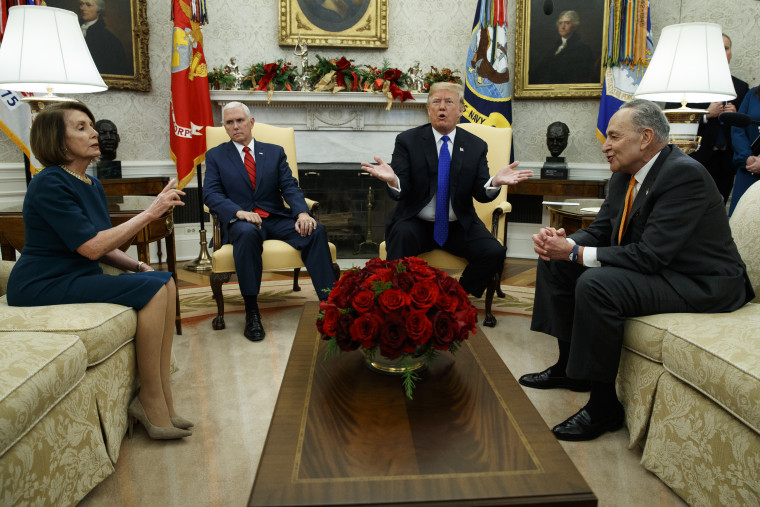On Monday, Senate Judiciary Committee Chairman Lindsey Graham (R-S.C.) made an announcement: he and Sen. Richard Blumenthal (D-Conn.) had reached an agreement on a "red-flag" bill. At the risk of oversimplifying matters, the idea is to take firearms from those deemed dangerous and mentally unfit. They're also known as ERPO ("Extreme Risk Protection Order") laws, and when it comes to reform measures, they enjoy fairly broad support.
According to Graham, the scope of the proposal would be relatively modest, though it would "create a federal grant program to assist and encourage states to adopt 'Red Flag' Protection Order laws to timely intervene in situations where there is an imminent threat of violence."
Given how close the Judiciary Committee chairman is with Donald Trump, the fact that the GOP senator announced progress on the bill suggested the White House was on board with the plan.
So, should reformers expect some real movement on this bill? It's not quite that simple.
Senator Chuck Schumer, the Democratic leader, put the brakes on Republicans' quick embrace of "red flag" laws as a response to last weekend's gun violence, saying on Wednesday that any gun-related legislation moving through the Senate must be accompanied by a House bill requiring background checks on all gun purchasers. [...]"We Democrats are not going to settle for half measures so Republicans can feel better and try to push the issue of gun violence off to the side," Mr. Schumer said in a statement. "Democrats in the Senate will seek to require that any E.R.P.O. bill that comes to the floor is accompanied by a vote on the House-passed universal background checks legislation."
That's almost certainly not what GOP leaders expected Schumer to say. Indeed, it's a rather hardball move for the Senate Democratic leader.
From Schumer's perspective, it's easy to see an ERPO bill as a nice-but-underwhelming step. There's nothing wrong with encouraging states to pass red-flag laws, but given the circumstances, Schumer and other Democratic leaders believe a far more ambitious approach is needed.
Over the last couple of days, a predictable legislative progression has started to come into focus: we'd see some bipartisan agreement over a modest bill; Democrats would seek more meaningful reforms; Republicans would say no, and Dems would be left with a take-it-or-leave-it proposition. Reformers could have an ERPO bill or they could have nothing.
Schumer's statement yesterday was, in effect, a shot across the bow: the Democratic priority is background checks, not a measure that encourages states to embrace red-flag measures that states are already free to pursue.
If an ERPO bill is the only thing Republicans are prepared to offer, will Schumer and Senate Dems reject it as insufficient? According to Schumer's statement, yes, that's exactly what they'll do.
To be sure, we're in the early stages of legislative talks, and with lawmakers away from Capitol Hill for another few weeks, real negotiations probably won't begin in earnest until Congress gets back to work.
But Schumer is nevertheless taking this opportunity to set some parameters for the road ahead. Watch this space.
